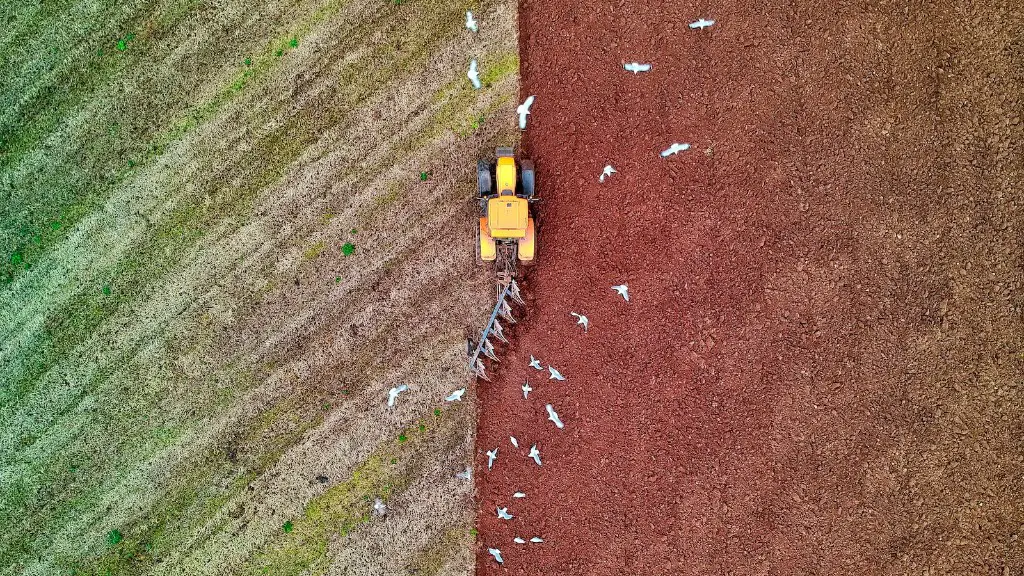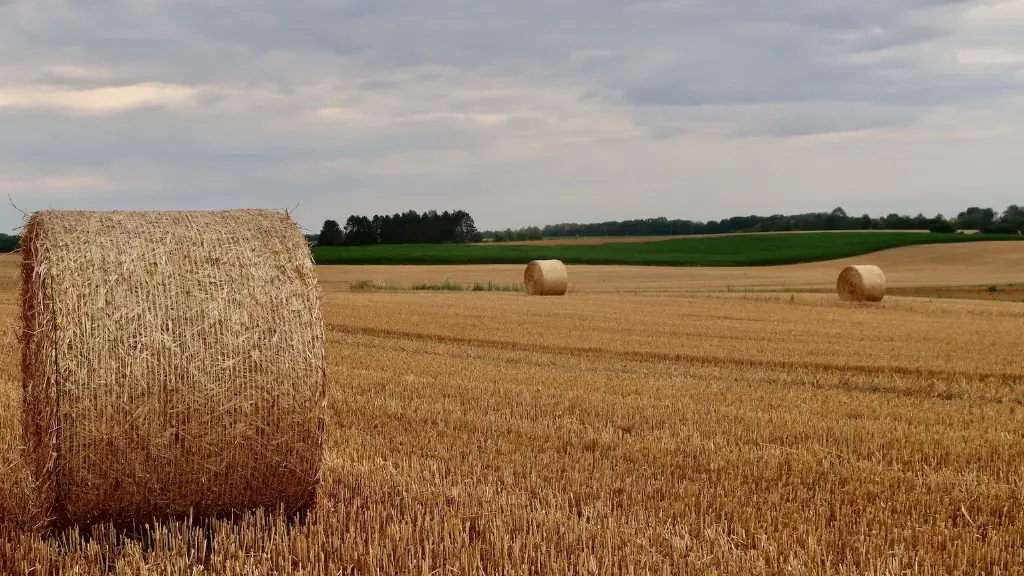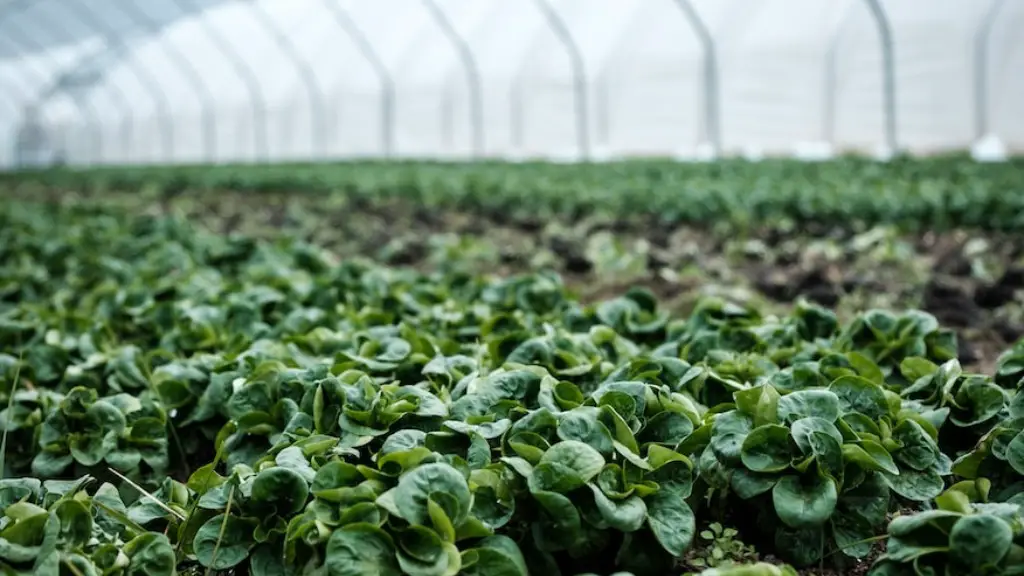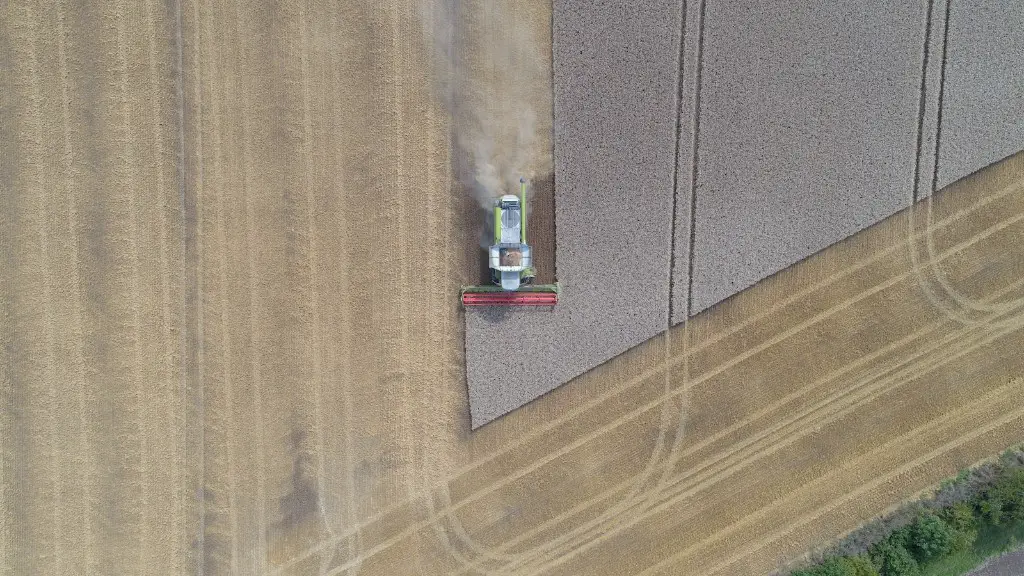Africa is a continent with incredible agricultural potential. With the right policies and investments, Africa has the potential to become a powerhouse in the global agricultural market. However, Africa’s agriculture sector is currently underdeveloped and faces many challenges. In order to improve agriculture in Africa, policies and investments must be targeted at key issues such as infrastructure, productivity, and access to markets. With the right interventions, Africa’s agriculture sector has the potential to transform the continent’s economy and improve the lives of millions of people.
There is no one-size-fits-all answer to this question, as the best way to improve agriculture in Africa largely depends on the specific context and needs of each individual country. However, some general strategies that could be adopted include:
1. Improving access to quality seeds and inputs: One way to improve agricultural productivity in Africa is to ensure that farmers have access to quality seeds and inputs (e.g. fertilizer, pesticides, etc.). This can be done through initiatives such as the distribution of free or subsidized inputs, or the establishment of input supply chains.
2. Enhancing Extension Services: Another way to improve agriculture in Africa is to provide farmers with better access to extension services. Extension services refer to the delivery of information and advice to farmers regarding best practices in agriculture. This can help farmers to improve their crop yields and incomes.
3. Promoting irrigation: Irrigation can play a key role in improving agriculture in Africa, as it can help to mitigate the impact of droughts and weather-related shocks. In countries where water is scarce, promoting more efficient irrigation practices (e.g. using drip irrigation) can be particularly beneficial.
4. Supporting smallholder farmers: Smallholder farmers account for the majority
What actions would you recommend for African countries to improve their agricultural sector?
It is important to make agriculture profitable so that farmers can continue to produce food for the world. To do this, we need to undertake macro-economic and agricultural policy reform. This will help to develop and disseminate improved agricultural technology. Additionally, we need to empower farmers so that they can more widely participate in managing all aspects of agricultural development. This will ensure that agriculture remains a viable industry for years to come.
Sustainable agriculture is a type of agriculture that focuses on producing long-term crops and livestock while minimizing negative environmental impacts. There are many different sustainable agriculture practices, but some common ones include rotating crops, planting cover crops and perennials, reducing or eliminating tillage, and applying integrated pest management.
What are the main challenges for agriculture in Africa
The third challenge is to manage these efforts to develop and promote sustainable, both in the field and in the whole economy. This is a difficult task, but it is essential in order to protect the environment and the livelihoods of those who depend on it. One way to do this is to invest in sustainable practices, such as agroforestry, which can help to improve the productivity of land while also providing environmental benefits. Another way to promote sustainability is to support local initiatives that promote sustainable practices, such as community-based natural resource management.
Higher crop productivity can have a number of benefits, including decreased use of water, fertilizer, and pesticides, which in turn can keep food prices down. In addition, higher crop productivity can reduce the impact on natural ecosystems, as well as less runoff of chemicals into rivers and groundwater.
What 5 things can we do to improve agriculture?
In order to increase crop yields, farmers need to adopt high-yield crops, boost irrigation, and increase the use of fertilizers. In addition, market access, regulations, and governance need to be improved in order to make better use of information technology. Finally, farmers need to adopt genetically modified (GM) crops and reform land ownership with productivity and inclusiveness in mind.
In recent years, policymakers in sub-Saharan Africa have begun to focus on economic transformation as a way to build a more modern and inclusive economy. The goal is to move workers from low-productivity sectors like agriculture to higher-productivity areas like industry and the service sector, as well as to increase productivity growth within sectors.
There are a number of challenges that need to be addressed in order to make this happen. First, the overall investment climate needs to improve in order to attract private investment and create jobs. Second, infrastructure needs to be improved in order to make it easier for businesses to operate and to move goods and services around. Third, the education and training system needs to be reformed to better prepare workers for the jobs of the future.
But if these challenges can be overcome, the potential rewards are great. A more productive and modern economy will create more and better jobs, raise living standards, and help to reduce poverty and inequality. It will also make sub-Saharan Africa more competitive in the global economy, and better able to take advantage of the opportunities that come with it.
What is the best way to increase the agricultural production in the country?
Quality inputs are essential to raising productivity under both the rainfed and irrigated conditions. In addition, strong extension and advisory services are important for enhancing the adoption and efficiency of improved inputs.
Reduced tillage is a common goal among farmers because it can make the tasks of land preparation and weeding less labour intensive. This can be achieved through the use of improved hoes, row planting, draught animal powered rippers, harrows and planters. By using these tools and equipment, farmers can reduce the amount of time and labour required to prepare their land for planting.
How agricultural problems can be solved
Agricultural problems can be broadly classified into two categories: (1) those arising from the natural environment and (2) those caused by humans.
The natural environment includes soil type and fertility, climate, water availability, and pests. Each of these has an impact on crop yields.
Soil type and fertility: The type of soil on a farm has a major influence on crop yields. Different crops require different types of soil, and the fertility of the soil also affects yields.
Climate: The climate is another important factor affecting agricultural production. The amount of rainfall, the timing and distribution of rainfall, temperature, and sunshine all impact crop yields.
Water availability: One of the most important limiting factors for agriculture is the availability of water. Irrigation is essential for most crops, especially in arid and semi-arid regions.
Pests: Pests, diseases, and weeds can have a significant impact on crop yields. Crop rotation, use of pesticides and herbicides, and other pest management strategies are necessary to minimize the impact of these pests.
Humans also have a major impact on agricultural production, through both intentional and unintentional actions. Intentional actions include farm management practices such as tillage
African farmers often lack basic resources that are taken for granted in other parts of the world, such as access to improved crop varieties, fertilizers, and irrigation. Although some progress has been made in addressing these weaknesses, more needs to be done in order to truly support African farmers.
Why is agriculture slow in Africa?
It is widely believed that the primary reason for lower agricultural production in sub-Saharan Africa is due to a variety of inherent factors, including climate, soil quality, slavery, and disease. Many of these factors are out of the control of African farmers, and as a result, agricultural production in the region has lagged behind the rest of the world. In order to improve agricultural production in sub-Saharan Africa, it is essential to address these underlying factors.
The Africa Union’s Peace and Security Council will be closely monitoring intra-state conflict, terrorism, and unconstitutional changes of government in Africa in 2022. These are ongoing concerns that need to be addressed, and the AU PSC will be paying close attention to how these issues are dealt with on the continent.
What are three issues in agriculture
Setting the table to address the triple challenge means putting into place the infrastructure and systems necessary to sustainably feed a growing population, provide a livelihood for farmers, and protect the environment. This must be done in a way that addresses all three challenges together, as any progress made in one area is unlikely to be sustainable without progress in the other two.
Precision agriculture is an innovative way of developing crops using high-tech data collection tools and analysis. In 2021, there are several trends in agriculture innovation that can help farmers increase yields and improve efficiency.
1. Get precise fruit count for your orchard by taking a few pictures.
2. Monitor the growth rate and size class distribution of fruits in your orchard.
3. Get detailed estimation data about your yield weeks in advance.
4. Use data analytics to optimize irrigation and fertilization schedules.
5. Implement robotic technologies for tasks such as weed removal and crop harvesting.
6. Designate specific areas of the farm for different crops or activities.
7. Improve communication and collaboration among team members using mobile apps.
8. Foster a culture of innovation on the farm by encouraging new ideas and thinking outside the box.
9. Stay up to date on the latest agricultural research and developments.
What are 3 challenges facing agriculture in the future?
Farmers and livestock producers are facing uncertainty over three primary issues: agricultural trade, tax reform, and the new farm bill. Agricultural trade is a major concern due to the potential for increased tariffs and other trade barriers. Tax reform is also a major concern, as the new tax law could have a significant impact on farmers and ranchers. The new farm bill is also a major concern, as it could significantly change many of the programs and benefits that farmers and ranchers rely on.
There is an urgent need to increase agricultural productivity in order to meet the demands of a growing population. Limited availability of cultivable land and water resources make it necessary to raise yields per unit of land. This can be achieved by diversifying to value added crops and reducing costs, wastages, and pilferage.
Warp Up
There is no one-size-fits-all answer to this question, as the best way to improve agriculture in Africa will vary depending on the specific circumstances and resources available in each location. Some possible measures that could be taken to improve agriculture in Africa include:
-Investing in irrigation infrastructure to improve access to water for crops
-Providing training and support to farmers to help them improve their yields
-Improving access to markets so farmers can sell their produce more easily
-Introducing or promoting sustainable agricultural practices that help protect the environment
There are many ways to improve agriculture in Africa, but some of the most important include improving infrastructure, increasing access to markets and financial services, and investing in human capital. With the right investments, agriculture in Africa has the potential to be a driver of economic growth and poverty reduction.





